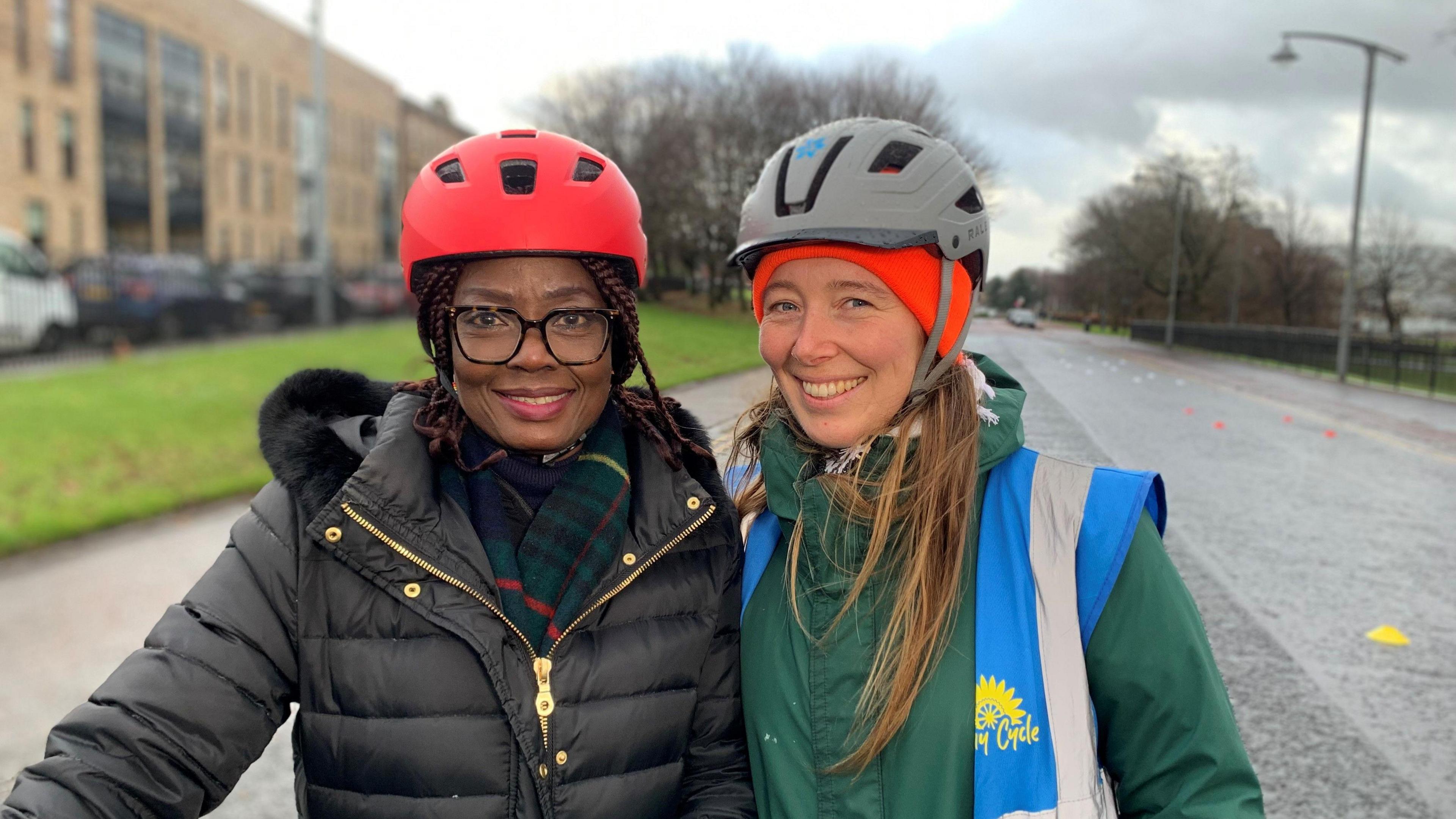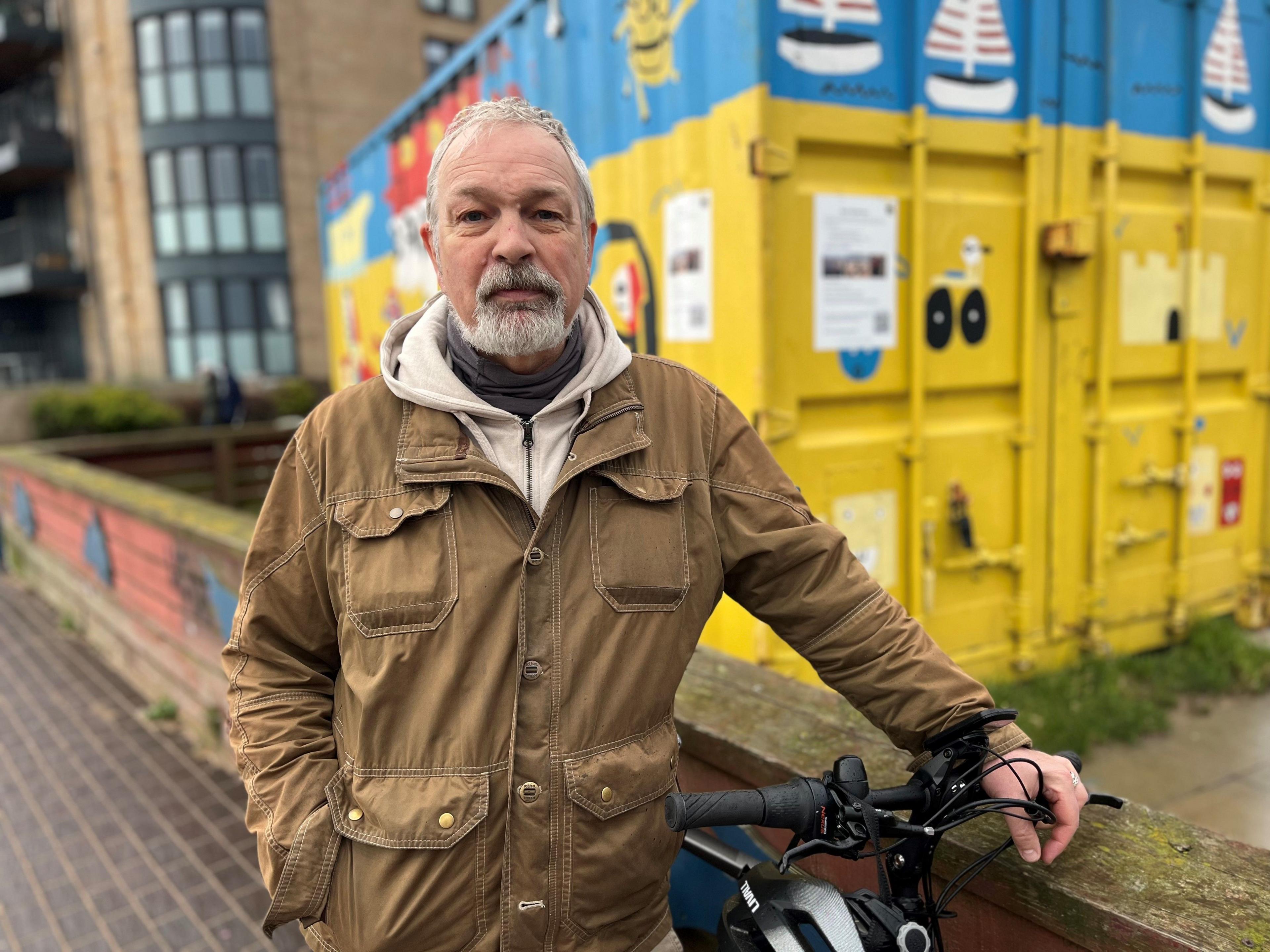Donated bikes help refugees feel better connected

Edith, from Nigeria, arrived in Scotland last year and has been getting cycling instruction from Sunny Cycles volunteer Eilidh
- Published
For those lucky enough to have received a shiny new bike for Christmas, the question is what to do with the old one? Steven McCluskey, the founder of Bikes for Refugees, has a suggestion.
"If you have a bicycle in your shed or your garage, then please think of us and the people we support," he says.
The idea is simple. You donate a bike, a volunteer fixes it up in one of the charity's bike workshops before passing it on to a refugee or asylum seeker.
"If you are an asylum seeker you're not allowed to work." Steven says. "You're given an allowance of £7 a day for food, clothes and public transport costs so a simple thing like a bicycle can really help with people's resettlement."
- Published14 December 2024
- Published6 July 2019
The inspiration for the charity arrived on Christmas Eve nine years ago when Steven and his partner Beth met Yaman who'd recently arrived from Syria.
He had bought a beaten up old bike online so the couple took him to their local bike shop, Pedal Forth Cycles in Leith, to try and get it fixed up.
"The bike wasn't worth repairing but the guy who ran the bike shop very kindly donated a bike to Yaman," Steven says.
"I noticed how something quite simple - that you or I might take for granted - just made a massive impact on his daily life. It helped him to connect to local services, it promoted his mental health and wellbeing. It enabled him to meet other people."
Since 2016, Bikes for Refugees has expanded, setting up community hubs in Glasgow and Edinburgh, staffed by about 50 volunteers.
At the end of last year the charity reached a milestone when it handed over its 3,000th bike.
"It has grown organically. It's been about identifying a need and trying to respond to in a creative way," Steven says.

Steven McCluskey says owning a bike can have a massive impact on the lives of refugees living in Scotland
According to the most recent figures, approximately 5,500 people are seeking asylum in Scotland, a figure that's remained fairly stable for several years.
The vast majority are housed in Glasgow, fuelling demand for cycling instructor Eilidh who works specifically with new Scots for charities including Bikes for Refugees and Sunny Cycles.
Once a week, she leads a women-only group.
"A lot of women have never cycled before so I do teaching for beginners and then gentle rides to introduce people to Glasgow for a bit of fun and to meet new people," Eilidh says.
"I think it's super important, mainly because most people are fairly isolated and it brings people together."
'Build confidence and reduce costs'
Edith, a member of that group, is looking forward to getting a bike of her own after arriving from Nigeria last year.
"It will help me in navigating the city," she says.
"I don't need to board the bus. Now I'll ride my bicycle and go anywhere I want to go. That will help me build my confidence and also save me some costs on transportation."
With more than 300 households on their waiting list, Bikes for Refugees aren't able to meet demand as quickly as they'd like.
Steven McCluskey says New Year donations will be vital in helping them keep up.
"The best place to start is our website," he says.
"Very simply, we always need new bicycles.
"We want to get bikes into people's hands as quickly as possible, so the better condition the bikes are in, the better."